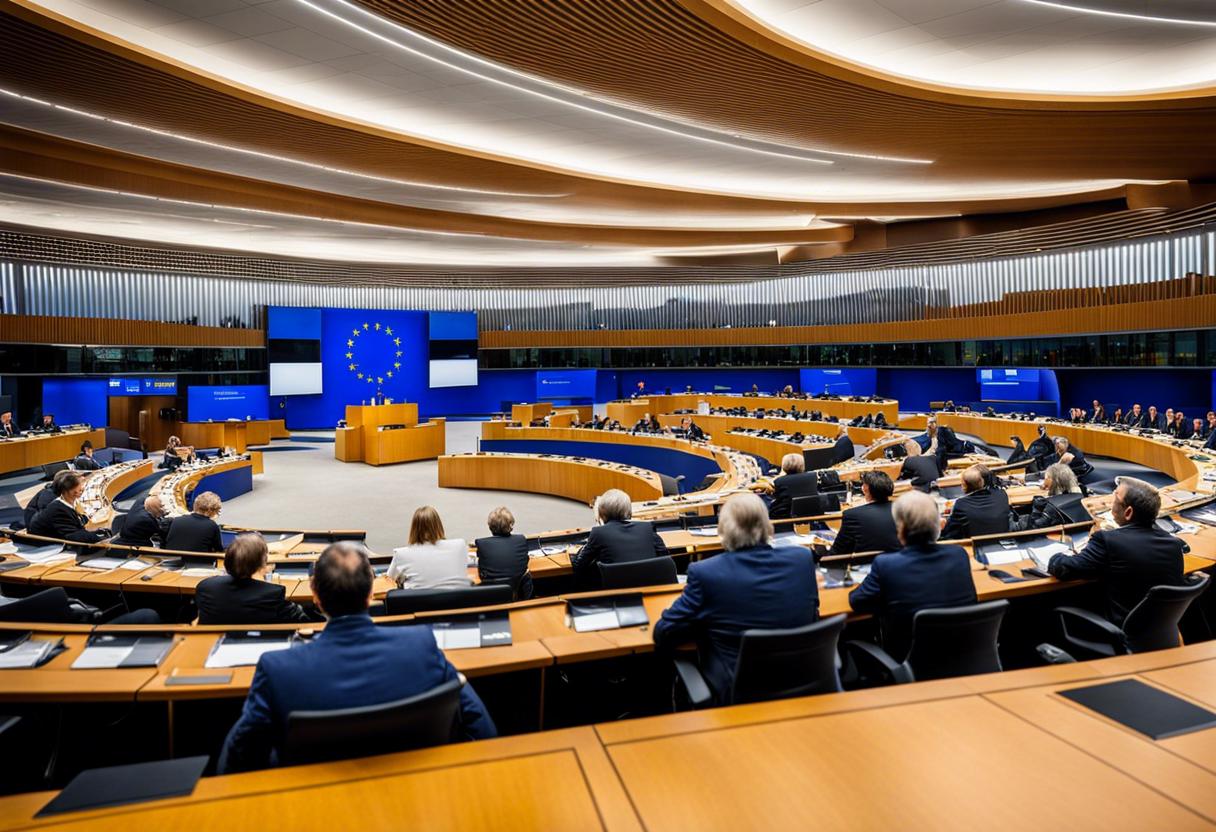The Ukrainian president, Volodymyr Zelenskiy, dashed in and out of Brussels for the European Union leaders’ summit on Thursday. He expressed gratitude to member countries for their backing and sought further military support. Following his departure, the focus of EU leaders didn’t remain on Ukraine’s critical aid requirements but shifted to the usual contentious EU issue: the allocation of significant positions.
Every half-decade, there’s intense speculation in Brussels about who will get which role, a discussion that predominantly interests the political elites more than the ordinary European citizen. One of those paying close attention from home is Michael McGrath, an ex-minister for finance.
Late-night deliberations were anticipated among EU leaders regarding who will head the union’s principal institutions for the coming five years. These include the European Commission, European Council, European Parliament, and foreign service. Earlier in the week, an agreement seemed almost final, with Ursula von der Leyen poised to secure a second term as commission president, the highest-ranking position.
However, a sudden objection from Italian prime minister Giorgia Meloni disrupted the resolving process. Meloni protested that neither Italy nor her right-wing ECR alliance was included in the agreement reached among the centre-right European People’s Party, the centrist Renew group, and the centre-left social democrats, despite the ECR’s success in recent elections. As a result, EU leaders urgently attempted to pacify Meloni with reassuring statements as the summit proceeded.
Assuming the agreement remains somewhat unchanged, attention will turn towards the European Parliament, which must vote for von der Leyen’s nomination in the near future. This will throw a spotlight on the stand taken by the four Fianna Fáil MEPs – Billy Kelleher, Barry Andrews, Barry Cowen and Cynthia Ní Mhurchú – who have all stated they wouldn’t support her nomination despite belonging to a party that supports her Government. As of Thursday evening, none of them had responded to enquiries.
MEPs have made their sentiments clear, indicating they would not back her given her controversial support for Israel, thereby reflecting her unfavorable reputation in Ireland. This has fueled speculation among Fianna Fáilers in Dublin, with one source hinting at the possibility of a clandestine vote. However, the idea that MEPs would publicly denounce her while privately backing her appears unlikely, even in the context of the complex politicking and secretive arrangements characteristic of EU negotiations.
Presently, von der Leyen is in a position of asking, aiming to win the approval of government heads and subsequently the votes of MEPs in the parliament. However, if she obtains the expected support from these bodies, the roles will dramatically shift. Governments will then be petitioning her, in hopes of attaining influential commission portfolios for their nominees.
This presents a few areas of contention for the Irish Government. Taoiseach Simon Harris emphasised on Thursday that contrary to what von der Leyen is likely to propose, he would not nominate a woman along with McGrath. This coupled with the Fianna Fáil MEPs’ anticipated slim support in the election, could result in von der Leyen not prioritising Ireland for prime commission assignments. Consequently, McGrath might encounter significant challenges securing his desired position in Brussels.

